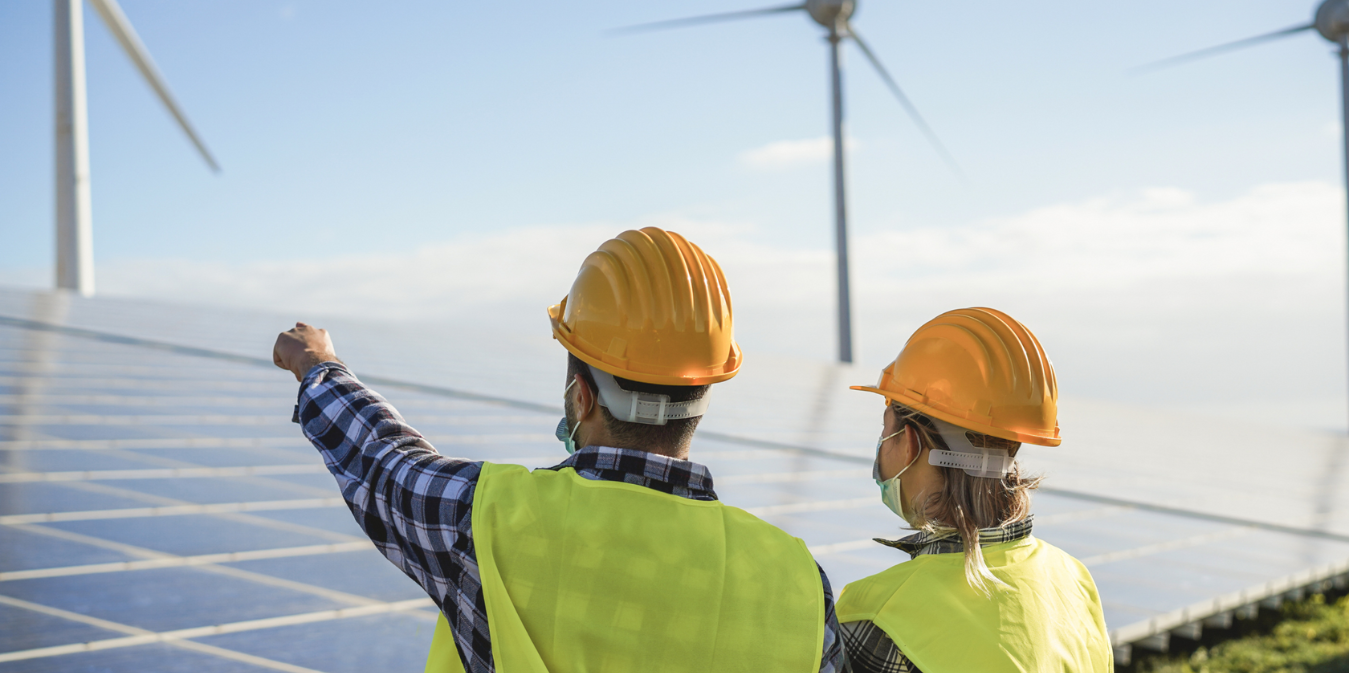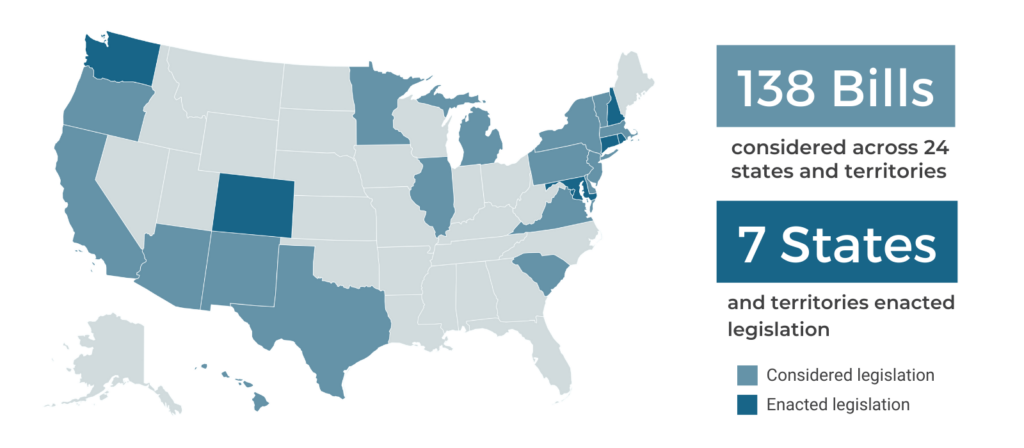
NCEL Blog
Creating a Clean Energy Economy Through a Just Transition
December 4, 2023
This resource is developed from a webinar held on September 8, 2023.
Overview
It is more evident than ever that to avoid the worst of the climate disasters the United States needs to rapidly transition away from fossil fuels and to clean energy. But what happens to the communities left behind in the wake of the transition? To advance climate justice through a just transition, state legislation needs to identify and center environmental justice communities, build an inclusive economy, support community-driven solutions, and require local pollution reductions.
As states transition off of fossil fuels, the workers and communities who have powered our nation for so long mustn’t get abandoned. A just transition to a clean energy future requires self-determination and support for those transitioning out of the fossil fuel industry. It is also critical that the clean energy sector does not repeat the mistakes of the past, and so a just transition involves equitable policy design to ensure that clean energy jobs are high-quality jobs that are accessible to all.
Strategies for Building a Clean Energy Economy
States can build diversified clean energy economies from within while protecting environmental/community assets and amenities. It will be important for states to hold industries accountable for the hidden costs of resource extraction by ensuring that these expenses are borne by the industry rather than shifted onto residents. Through leveraging severance taxes, states can capture the benefits of resource extraction in order to support public infrastructure, workforce education and training, tourism, and environmental enhancements. By establishing a permanent severance tax trust fund, states can gain a sustainable post-extraction funding resource to support future endeavors. This approach draws on successful models like New Mexico’s Land Grant Permanent Fund and Severance Tax Permanent Fund, Wyoming’s Mineral Trust Fund and Permanent Land Fund, and North Dakota’s Legacy Fund.
Policy Options
During the 2023 legislative session, at least 24 states and territories introduced 138 bills supporting a just energy transition. A total of 15 bills were enacted across seven states and territories.

During the briefing, Colorado’s policies on just transition were highlighted as potential methods for other states to ensure a just transition. Colorado has passed five pieces of legislation for facilitating a just transition.
The first piece of legislation H.B. 1314, passed in 2019, created the Office of Just Transition (OJT) in the Department of Labor and Employment (DOLA). The goal of this office is to implement a created Just Transition Action Plan (JTAP), which was submitted and approved by the legislature as a roadmap to how Colorado will accomplish its transition. The final plan is available here.
Since the initial legislation, Colorado has passed multiple other pieces of legislation to help fund the transition: H.B. 1290, H.B. 1394, and H.B. 1193. Also, Colorado passed H.B. 1074 requiring the Office of Future Work to study workforce transitions in Colorado’s economy.
Federal Opportunities and Resources
There are a variety of federal opportunities and resources available to help support states in creating a new energy economy through a just transition.
- Interagency Working Group on Coal and Power Plant Communities & Economic Revitalization (IWG): $500 billion of broadly available federal funding opportunities and 22 tax credits that are relevant for meeting the needs and interests of these communities.
- Qualifying Advanced Energy Project (48C – 30% investment tax credit): $1.6 billion of $10 billion set aside for projects in designated energy communities (brownfield site, coal site, or 0.17%+ fossil fuel employment).
- Energy Community Tax Credit Bonus (IRA): Up to 10% for production tax credits and 10% for investment tax credits for projects in energy communities.
- Distressed Area Recompete Program (CHIPS): $1 billion over five years ($200m FY23) for block grants to persistently distressed communities for economic development based on local employment rates.
Looking Forward
Much of the work towards building a new clean energy economy through a just transition has happened at the state level. While Colorado was highlighted in this briefing, other states such as New Mexico have begun similar work to ensure a just transition through the 2019 Energy Transition Act. Also, states such as West Virginia and New York have proposed the creation of just transition institutions and other working groups. It will be important to learn from what other states have done and ensure that federal government resources are going to support states in this work.